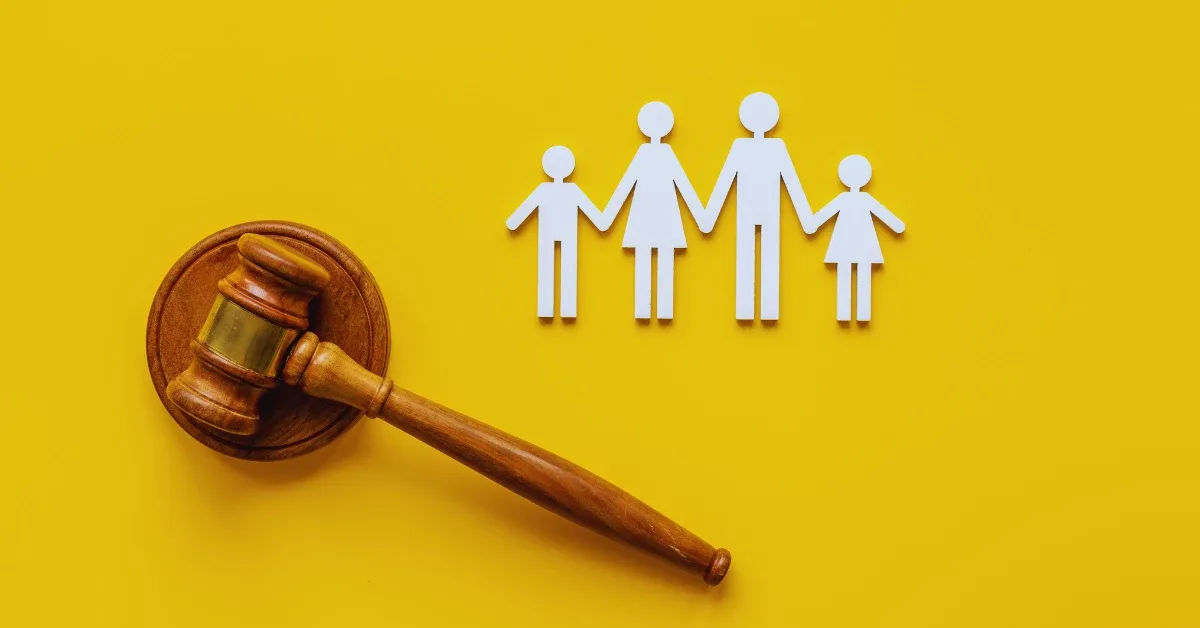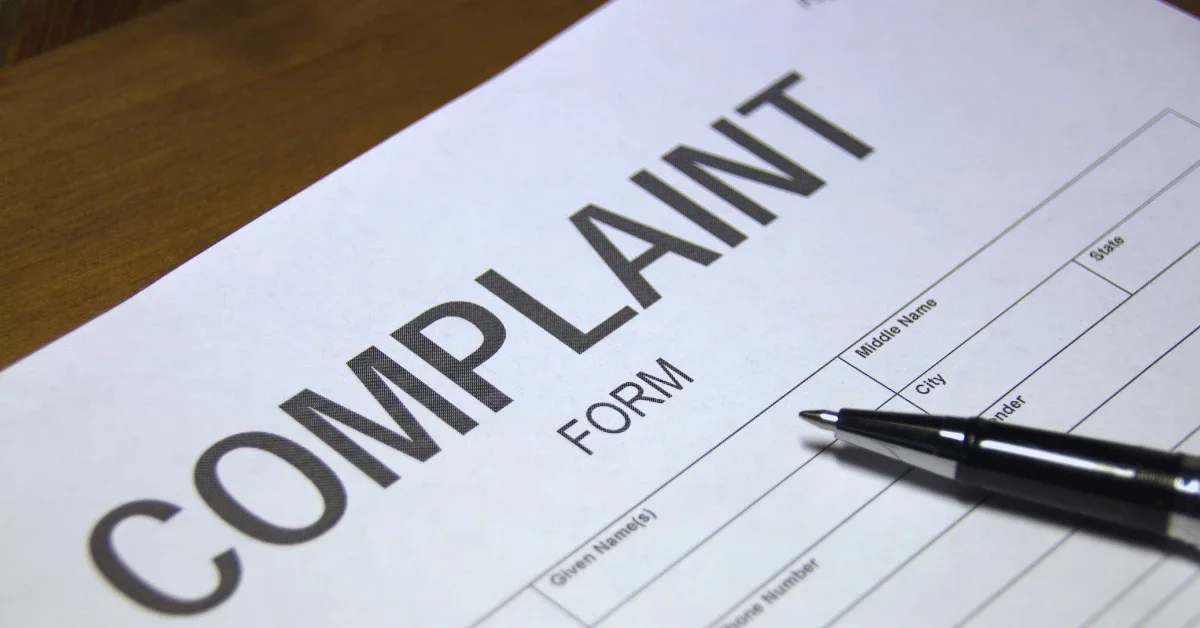Where Tenants Can Complain in Kenya? Rental Awareness
In Kenya, tenants can file complaints with the rental tribunal or the national land commission. The rental tribunal resolves disputes between landlords and tenants, while the national land commission deals with land disputes.
These organizations have the authority to enforce tenancy laws and regulations. These organizations also have the power to arbitrate disputes, resolve conflicts, and enforce rental laws in Kenya.
Let’s take a closer look at where tenants can complain in Kenya and the processes involved.

Understanding The Laws That Protect Tenants’ Rights

A Brief Overview Of Kenyan Tenancy Law
Kenyan tenancy law is governed by the rent restriction acts, which lay out the legal framework for landlords’ and tenants’ rights.
This law applies to both residential and commercial properties. The rent restriction act applies to tenancy agreements for a period of not less than three months.
Some of the key provisions of the act include:
- Rent control, which limits the amount of rent that can be charged.
- Security of tenure, which protects tenants from arbitrary eviction.
- Maintenance responsibilities, which require landlords to maintain their properties and ensure the habitability of rental units.
Key Tenant Rights Detailed In Kenyan Law
Kenyan law provides several protections for tenants’ rights, including:
Security of tenure
Tenants cannot be evicted from their property without a valid reason, such as non-payment of rent or breach of the tenancy agreement.
Rent control
The rent restriction act sets out the maximum amount of rent that a landlord can charge. Any rent increases must be approved by the rent restriction tribunal.
Notice period
Tenants are entitled to a notice period before they can be evicted. The notice period varies depending on the circumstances of the eviction.
Adequate housing standards
Properties must meet minimum standards for health and safety, as set out in the public health act and other regulations.
Appropriate maintenance
Landlords are responsible for maintaining their properties to ensure they are habitable, safe, and hygienic.
How These Laws Protect Tenants Against Rent Increases and Evictions?
Kenyan tenancy law aims to protect tenants from several issues they might face during their tenancy. These laws offer tenants various protections, including protection from:

Arbitrary eviction
There are strict requirements that landlords must follow when evicting tenants. Failure to adhere to these requirements could lead to costly legal proceedings.
Unfair rent increases
Rent increases must comply with the rent restriction act, and any rent increase above the maximum must be approved by the rent restriction tribunal.
Poor living conditions
Landlords must provide a habitable, safe living environment for tenants. Failure to do so could result in legal action against the landlord.
Unjustified deposits
The law prohibits landlords from charging excessive security deposits. A landlord is allowed to only take one month’s rent in advance as a security deposit.
Where To Find Help And Support For Tenants
Are you navigating a problematic tenancy agreement? Do you struggle with your landlord’s constant harassment?
Kenya has various options that tenants can use to report and seek help. Let’s explore some of the resources you can take advantage of.
Legal Options For Tenants Who Are Struggling With Landlords
If your tenancy challenges escalate to a point where you need to take legal action, consider the following options:
- File a complaint to the Ministry of Lands and physical planning.
- Consider hiring an attorney who specializes in tenant-landlord matters.
- Lodge a report to the national land commission.
How To Access Legal Aid And Support In Kenya?
Several institutions offer legal services to Kenyan tenants. Here are some of the organizations that you can reach out to for help:
- The office of the Ombudsman.
- The national legal aid service.
- The Kenya human rights commission.
- The Federation of women lawyers Kenya.
Exploring Local Resources That Offer Tenant Protection And Advocacy
Various organizations in Kenya provide advocacy and protection for tenants’ rights. Here are some of the resources you can turn to for help:
- The Kenya tenants association (kta).
- The Kenya Alliance of residents associations (kara).
- The Coalition for constitution implementation Kenya (cci Kenya).
- The Center for urban research and Innovations (curi).
Remember that while Kenya has a wide range of sources that tenants can utilize, it’s essential to exercise caution and carry out due diligence before seeking assistance.
Always research your attorney or the organization you intend to contact to ensure that they have a good reputation.
Tenancy issues can be stressful and challenging, but with the right resources and support, you can navigate them effectively.
Don’t hesitate to reach out to these institutions and take advantage of the services they offer.
Why It’s Important To Report Landlord Abuse
Living in a rental property can be a headache, especially when dealing with a problematic landlord. If you are a tenant, you have the right to be treated fairly and respectfully.
However, there are times when landlords might mistreat their tenants, violating their tenancy rights.
As a result, it’s crucial to know the proper channels to report such issues and get the help you need to resolve them.
The Impact Of Unreported Landlord Abuse On The Lives Of Tenants
Unreported landlord abuse can have severe negative consequences for tenants, including:
Loss of property
Landlord abuse can result in the loss of personal belongings or damage to property, leading to financial loss.
Health concerns
Prolonged exposure to hazardous conditions in a rental property such as mold, lead paint, or poor ventilation can cause several health issues, including respiratory problems.
Safety concerns
A landlord who fails to make repairs or secure the property exposes tenants to safety hazards, including fire, electrical and structural risks.
Emotional stress
Living in an unsafe, unhealthy, and unsecured environment can take a toll on one’s mental health, leading to depression, anxiety, and stress.
Why It’s Crucial To Speak Up And Seek Help When Faced With Rental Property Issues
As a tenant, it’s crucial to speak up when you’re facing rental property issues. Here are a few reasons why you should do so:
Protect your rights
You are entitled to certain rights as a tenant, including a clean, safe, and habitable living environment.
By speaking up, you can ensure that your rights are protected and respected.
Prevent future abuse
Reporting landlord abuse can prevent future tenants from experiencing the same problems you faced.
Resolve issues
Speaking up can help you find a solution to your rental property issues, whether it’s through mediation, arbitration, or legal action.
Hold landlords accountable
Through reporting, landlords can be held accountable for their actions, and such actions may result in consequences that prevent them from doing it again to other tenants.
Reporting landlord abuse is essential for the well-being and safety of tenants. Tenants should not hesitate to speak up and seek help when faced with rental property issues.
By doing so, they can protect their rights, prevent future abuse, and hold landlords accountable.
Complaint Procedures For Tenants
If you are a tenant in Kenya and you have a complaint about your rental property, it is essential to know the complaint procedures available to you.

Follow these steps to raise your complaint formally:
Contact your landlord
The first step is to speak to your landlord or property manager. Communicate your complaint in writing, if possible, and give them a reasonable time to respond. Keep a copy of the correspondence for future reference.
Seek mediation
If your landlord does not address your complaint within a reasonable time, you can seek mediation.
There are several options for mediation services in Kenya, including the Ministry of Lands and Housing, the rental tribunal, and the alternative dispute resolution (adr) centre.
File a complaint with the rental tribunal
If mediation does not resolve your complaint, you can file a complaint with the rental tribunal.
It is a government agency mandated to handle and resolve disputes between tenants and landlords in Kenya.
The Agencies And Government Bodies Responsible For Hearing Tenant Complaints
Several agencies and government bodies are responsible for hearing tenant complaints in Kenya. Some of these bodies include:
The Ministry of Lands and Housing
The ministry is responsible for overseeing housing in Kenya. They have guidelines in place to regulate the sector, and they handle housing-related complaints.
The rental tribunal
The rental tribunal was established by the Kenyan government to handle disputes between tenants and landlords, including complaints about rent, maintenance, or evictions.
The alternative dispute resolution (adr) Centre
The adr centre is a mediation organization that handles disputes in Kenya. They provide an alternative dispute resolution mechanism for people who don’t wish to use the more formal rental tribunal.
Myths And Misconceptions Around The Complaint Process In Kenya
There are several myths and misconceptions surrounding the complaint process in Kenya. Here are some of the most common ones:
Complaints always lead to eviction
Many tenants avoid lodging complaints because they fear eviction.
However, the rental tribunal and other agencies are mandated to ensure justice for both tenants and landlords and will not always resolve disputes in favour of landlords.
Tenants need a lawyer to file a complaint
This is not true. While legal representation is always helpful, it is not mandatory when filing a complaint.
The rental tribunal and adr centre offer services that allow tenants to file complaints without legal representation.
Complaints take too long to resolve
While some complaints may take time to resolve, most organizations responsible for hearing complaints have a fast dispute resolution process in place.
The rental tribunal, for example, resolves disputes within 45 days from the date of filing.
Knowing the proper complaint procedures, the relevant government agencies, and myths surrounding the complaint process can help you resolve any issues with your landlord more efficiently.
Evidence Gathering For Rental Disputes
Types Of Evidence To Gather While Filing A Complaint Against Your Landlord
When filing a complaint against your landlord, it is crucial to have the necessary evidence to back up your claim.
Here are some of the most crucial pieces of evidence that you should consider gathering:
- Rent payment history.
- Written correspondence between you and the landlord.
- Photographs or videos of the rental property.
- Witnesses or testimonials from neighbours, if applicable.
- Copies of any legal documents such as lease agreements or notices given by the landlord.
How To Organize And Present Your Evidence Effectively?
After gathering all the necessary evidence, it’s crucial to organize and present it effectively to ensure that it is easily understandable by relevant parties.
Some tips on how to do this include:
- Use clear language and be concise.
- Arrange documents in chronological order.
- Use labels or headings to separate various types of evidence.
- Create an index of evidence to help track specific documents.
- Provide an explanation of each piece of evidence if necessary.
What To Do If Your Landlord Refuses To Comply With Legal Directives?
In some cases, even when presented with concrete evidence, landlords may refuse to comply with legal directives. In such a case, here are the steps you should take:
- Engage a lawyer who understands tenancy law.
- File a complaint with the relevant authority such as the rent tribunal, which is mandated to handle such issues.
- If the dispute escalates, consider alternative means of resolution such as arbitration or mediation.
When gathering evidence for rental disputes, be thorough and precise.
Present your evidence in an organized and easily digestible manner and take swift action if your landlord fails to comply with legal directives.
Remember that gathering evidence early on can save you a lot of trouble and money in the long run.
Strategies For Resolving Conflict With Your Landlord
No matter how carefully you choose your landlord, conflicts can still arise. From delayed repairs to disagreements about rent increases, conflicts with your landlord can be stressful.
If you find yourself struggling to resolve an issue with your landlord, it’s important to know your options.
We’ll explore some strategies for resolving conflict with your landlord in Kenya.
How To Negotiate Effectively With A Difficult Landlord?
Negotiating with a difficult landlord can be intimidating, but it’s important to remember that you have rights as a tenant.
Here are some tips for negotiating effectively with a difficult landlord:
Know your rights
Familiarize yourself with the laws that protect tenants in Kenya, and use that knowledge to advocate for yourself.
Be prepared
Come to the negotiation table with specific examples and a clear idea of what you want to achieve.
Stay calm
Even if your landlord is being aggressive or unreasonable, try to remain calm and respectful.
Consider mediation
If negotiations break down, consider hiring a mediator to help resolve the dispute.
Developing Conflict Resolution Skills When Dealing With Landlord Disputes
Learning how to resolve conflicts with your landlord is an important skill for any tenant.
Here are some tips for developing conflict resolution skills when dealing with landlord disputes:
Communicate clearly
Make sure that both you and your landlord understand each other’s positions and can clearly articulate what you want to achieve.
Listen actively
Be willing to listen to your landlord’s perspective and try to find common ground.
Keep emotions in check
Try not to let frustration or anger get the better of you when communicating with your landlord.
Be willing to compromise
Look for creative solutions that may not have been immediately apparent.
Looking For Common Ground And Creative Solutions To Tenancy Issues
When it comes to resolving disputes with your landlord, it’s important to remember that you are both working towards the same goal: maintaining a livable and comfortable living space.
Here are some tips for looking for common ground and creative solutions to tenancy issues:
- Brainstorm together: Work with your landlord to come up with creative solutions that address everyone’s concerns.
- Prioritize: Identify the issues that are most important to you and be willing to compromise on less significant ones.
- Seek guidance if necessary: If you’re struggling to come up with solutions, consider seeking advice from a legal professional or a tenant advocacy group.
- Keep lines of communication open: Continue to communicate with your landlord even after a dispute has been resolved to ensure that everyone is on the same page.
The Role Of Mediation In Resolving Disputes
Disputes between landlords and tenants are common, but they don’t have to end up in court.
Mediation is a method of resolving disputes through a neutral third-party mediator. In Kenya, there are resources available to tenants who want to access mediation services.
Here’s what you need to know:
The Benefits Of Mediation For Tenants And Landlords
- Mediation is a cost-effective way to resolve disputes without going to court.
- It’s a confidential process, so tenants can speak freely and openly without fear of retaliation.
- Mediation allows for a mutually agreeable solution that benefits both the tenant and landlord.
- It’s quicker than going to court, so tenants can get back to their normal lives faster.
How To Access Mediation Resources In Kenya
- The Kenyan constitution requires landlords to provide tenants with a written rental agreement.
- The provisions of the rental agreement should include information about the dispute resolution process.
- If there is no provision for dispute resolution, a tenant can contact a mediation institution or seek legal assistance.
What To Expect During A Mediation Session
- The mediator will ask both parties to explain their side of the issue.
- The mediator will help both parties identify areas of agreement and disagreement.
- The mediator will help both parties reach a solution that is mutually agreeable.
- The solution reached through mediation is binding, so both parties are legally obligated to follow it.
Mediation is a valuable tool that can help landlords and tenants resolve their disputes amicably.
Tenants in Kenya have access to mediation resources and should take advantage of them to avoid the high cost and stress of going to court.
Frequently Asked Questions For Where Tenants Can Complain In Kenya
Where Can Tenants File Complaints In Kenya?
Tenants can file complaints with the Ministry of Lands and physical planning, the national land commission, or the rental housing tribunal in Kenya.
How Can Tenants Make Complaints In Kenya?
Tenants in Kenya can make complaints by writing a letter or email, or by filling out a complaint form and submitting it to the relevant authority.
What Are The Common Complaints Made By Tenants?
Common complaints made by tenants in Kenya include issues with rent payment, eviction, repairs and maintenance, and harassment by landlords or caretakers.
What Should Tenants Do If Their Complaint Is Not Resolved?
If a complaint is not resolved, tenants in Kenya can seek further legal advice from a lawyer or escalate the matter to a court of law.
Conclusion
Having rental problems in Kenya? Don’t stay silent. Reach out to the Rent Restriction Tribunal or the Kenya Property Developers Association.
You’re never alone in this journey, and your voice deserves to be heard. Your rights matter. It’s time to take a stand.